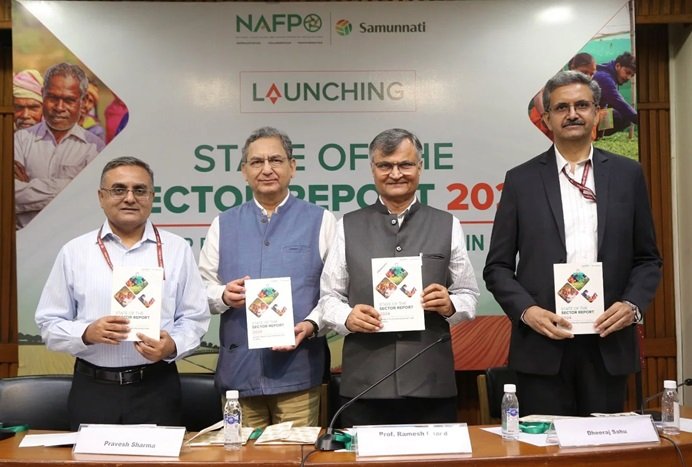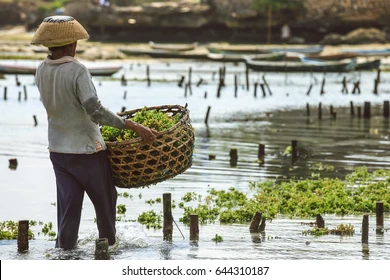States should develop their FPO policies that are in line with the national plan: Faiz Ahmad Kidwai
National Association of Farmer Producer Organisations (NAFPO), in collaboration with Samunnati published ‘State of the Sector Report 2024’ during the event.
The National Association of Farmer Producer Organisations (NAFPO), in collaboration with Samunnati, published the “State of the Sector Report 2024” on October 28, 2024. This comprehensive analysis intends to stimulate strategic policy-making and sectoral growth by shedding light on the primary challenges that Farmer Producer Organisations (FPOs) in India face as well as the expanding opportunities that they have been presented with.
Distinguished dignitaries such as Professor Ramesh Chand of NITI Aayog, Faiz Ahmad Kidwai, Additional Secretary, Ministry of Agriculture & Farmers’ Welfare, Pravesh Sharma Director of NAFPO, Indian Administrative Service and, and Dheeraj Sahu from State Food and Agriculture Corporation (SFAC) were present at the event. The “State of the Sector Report 2024” is a treasure trove of information that can assist in bridging gaps and improving the effectiveness of the FPO. It is a valuable resource for agencies, parliamentarians, and stakeholders.
“India is on a mission to develop FPOs as thriving enterprises, driven by national policies and grassroots input. For the purpose of ensuring that agricultural expansion is approached in a unified manner, we are strongly encouraging states to develop their own FPO policies that are in line with the national plan”, said Faiz in his address.
Faiz also stated that the states ought to follow their own policies in order to strengthen the FPO mission in India.
In particular, he discussed the 10,000 FPO initiative, which has been of assistance to over 2.5 million farmers, as well as the objective of the Ministry of Agriculture to increase the number of FPOs. According to Kidwai, the Ministry intends to extend the scope of this initiative so that it encompasses a greater number of farmers. Through the provision of marketing links, input licensing, and simplified access to markets, this will contribute to the promotion of revenue growth driven by businesses.
A total of 30,000 licences for the distribution of fertiliser, seeds, and pesticides have been distributed to farmer collectives in the past two months as part of the input licensing process that is administered by the Ministry of Agriculture. Kidwai claimed that the government should provide financial instruments to the FPOs when they require financing on a much larger scale and at a lower interest cost. He stated that the cost of financing for the FPOs is high when they access financing from non-banking finance businesses.
“By participating in the urban job market, women gain skills, resource and exposure that can contribute significantly to their leadership roles within FPOs. This trend fosters a dual benefit: it enhances individual economic agency while bolstering the collective strength and sustainability of FPOs, thereby promoting inclusive development across rural and urban landscape,” stated Anil Kumar SG, Founder and CEO, Samunnati.
“The dynamism and energy in the FPO sector are palpable, as are the outstanding challenges of building robust business capabilities, accessing capital for investments and operations, repurposing the farm to achieve climate resilience and above all, finding remunerative markets. We remain hopeful that the FPO sector will continue to strengthen to address old and new challenges in the coming year,” said Pravesh Sharma, Chairman Steering Committee, NAFPO.
National Association of Farmer Producer Organisations (NAFPO),














